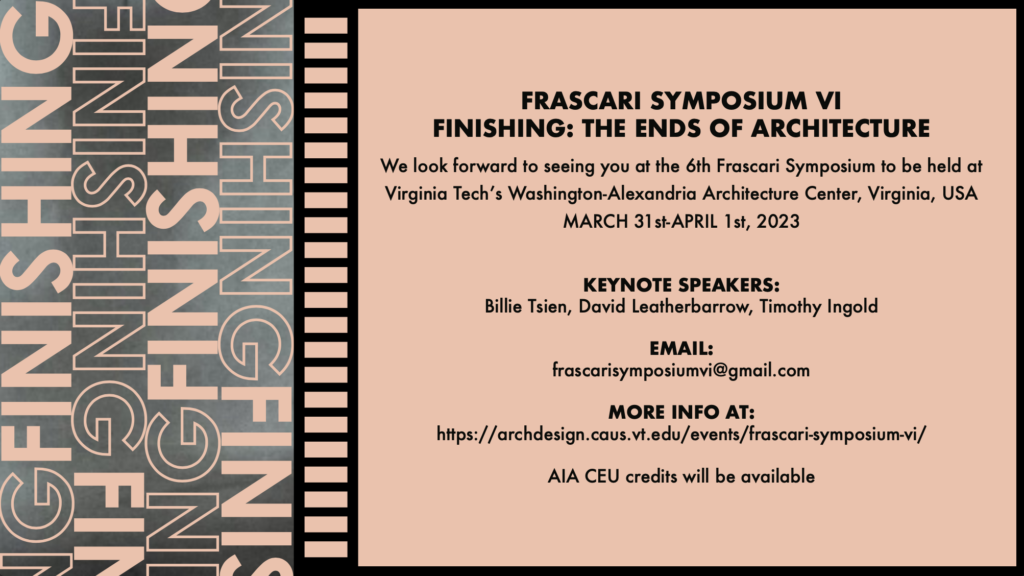
March 31st – April 1st, 2023, Virginia Tech’s Washington-Alexandria Architecture Center, Virginia, USA
The Tower of Babel, perhaps the original architectural fable, foretells the impossibility of architecture’s completion. The utopic final state dreamed by architects is such that its end never arrives, and may never be finished. This has precipitated lamentations of architecture’s seemingly permanent existential crisis, like a store continuously “going out of business.” Edward Said’s On Late Style identifies finishing as an awareness of coming to an end, yet without actually arriving there. Nonetheless finishing as a topic evokes the tendency to close down, to terminate, to desist, while remaining stubbornly under-theorized. Help us, then, expand the conceptualization of finishing and explain the practices of finishing in architecture along three currents: the surface, the project, and most broadly, architectural time itself.
Finishing up, finishing off, crossing the finish line. Is finishing the endpoint, or itself a process, a concluding stage? Architectural constructing and construing, not limited to the proverbial drawing board, defines a project, defines a building, but also spans an architect’s entire career, her oeuvre. Poetic acts can initiate and sustain architectural conversations when edifices exist in the public sphere, despite Winckelmann’s proclamation of the births and deaths of styles. For something to be complete (full or final), therefore, it need not necessarily be finished (ended), and vice versa.
Finishing also connotes perfecting – applying the finishing touches. Is the end, then, the completion of a design, checking off the punch-list at the end of construction, or does it continue through a building’s lifetime, perhaps even extending to its ruined state and beyond as spoils? Michelangelo’s work often embodies “the poetic of the non-finito,” demonstrating that an unfinished edifice may find “an elegant but incomplete” existence well past the point of being considered a work-in-progress. Unlike the unfinished, Marco Frascari (2015) posits that the non-finito exists outside of time.
If you plan to attend the symposium, please register via this link, which guarantees you access to presenters’ full papers. In addition, by registering, you will receive the Zoom invitation to attend the symposium (or some of the sessions) online. Each session will either be 70 or 90 minutes long. For more information regarding the symposium schedule please visit the “program” page.
